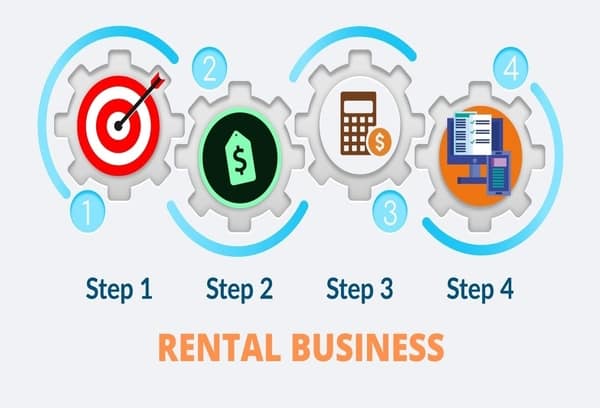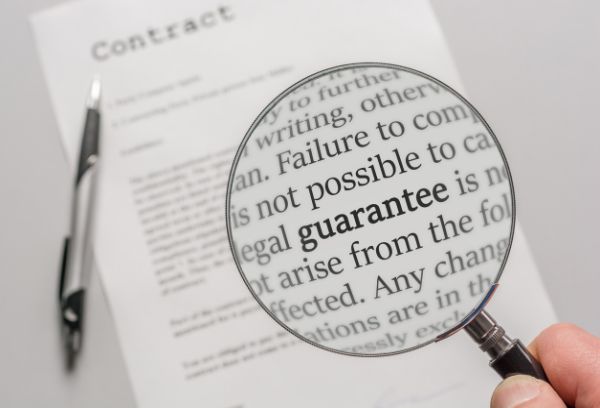Do you have construction equipment rental business ideas that you aren’t sure how to realize?
Starting your equipment rental business takes planning and execution. To find success, you must manage inventory, and market your business well.
To start your business on a great foundation, we share this step-by-step guide on how to rent out equipment.
Evaluating the Market
Whether you’re interested in starting a tool rental, or heavy equipment rental business, you need to know who your target customers are. What’s the most rented equipment type in your area? Is there a demand for equipment rentals? These are all important questions that you should find a definite answer to.
An important part of how to rent out equipment is choosing the right equipment type to cater to your local market. If your area doesn’t see much new construction but plenty of renovations, then you should focus on lighter tools instead of heavy equipment. Every local area is unique, and evaluating the specifics of the market is key to your success.
Pricing Your Rentals
Once you’ve determined what types of equipment are in demand in your area, you need to establish your rental business profitability. To do so, you’re going to have to decide what you’re going to charge for your rentals. This task can be more challenging than it might seem.
The primary factor behind your rates is going to be what the market is willing to pay. You can look at similar rentals in your local area (or the broader region) to find this out. If it’s cheaper somewhere else, then you won’t get much business. The other major factor in deciding your costs is going to be how much revenue you need to be profitable.
Determining Your Costs
Your revenue has to be weighed against the costs of running your business. If you’re renting out equipment for profit, you’re going to have a variety of expenses. First, there’s the capital investment of buying equipment to rent out. Depending on whether you’re going with general tools or heavy equipment, this can be a significant investment.
Property for your business is going to be another significant cost. You’ll need to rent some kind of property to serve as your storefront, equipment storage, and maintenance shop. Further costs can include wages as your business grows, utilities, insurance, maintenance, and more.
Acquiring Inventory
Once you have determined your potential revenues and costs and found that your tool rental business plan can be profitable, you can move forward with acquiring inventory. You want to ensure that you get quality equipment while keeping costs as low as possible.
In some cases, used equipment can be a viable option. It really depends on the specific type of equipment. If your equipment rental business will have large numbers of the same type of equipment, you can consider reaching out to mid-level distributors for better deals rather than relying on retail dealers.
Learn How Equipped Saved 10 Hours a Month by Automating Inventory Management with Quipli
Insuring Your Business
Insurance is important for many businesses but absolutely essential for rental businesses. Your insurance will protect you in several circumstances. The first is when equipment is damaged, but liability can’t be placed on the customer. This insurance can really save your business a lot of money on equipment replacement costs.
Second, your insurance will protect your business from potential liability for improper use of your rented equipment. If a customer were to cause significant damage to a building or property with your equipment, you could find your business under fire at some point in the legal proceedings. Insurance can protect you from this scenario.
Establishing a Maintenance Routine
Once your business is in swing, and you’re starting to rent out your heavy equipment, you’ll have to settle into a regular maintenance routine to keep it running. Different types of equipment have unique maintenance requirements. Keeping up with them is essential to maintaining both your inventory and your reputation as a rental business.
Another key component of your maintenance plan will be ensuring that customer maintenance requirements are communicated clearly. Many types of heavy equipment have active maintenance requirements that need to be carried out during the course of a regular working day, and customers need to know what their responsibilities are.
Marketing Your Rental Business
With your business now running properly, it’s no time to get complacent. You should always be focused on growing your business and bringing in new customers. To do so, you’ll need an effective marketing strategy that targets your potential renters. There are plenty of different options that you can take advantage of.
You should have a website that includes search engine optimization so that it comes up higher in search rankings. Social media can also play a role and make your business easier to find. Don’t discount traditional marketing tactics like brochures, print ads, and flyers, either. You might even consider billboards or bus ads, depending on your area.
Writing a Proper Rental Equipment Agreement
It’s important to ensure that you’re properly protected while running your business. That’s why you have insurance, a proper rental equipment agreement, and an equipment rental business license. Your rental contract establishes the roles and responsibilities of you and your customers, and it’s critical that you get it right.
A rental equipment agreement will protect you from costs due to negligent use of equipment by your renters. It also serves as an essential record of rental rates and schedules. You can check out our convenient rental agreement template to make sure you’re covering all of your bases.
Start Your Rental Equipment Business Right with Quipli
With so much planning and commitment going into your equipment rental business, you should implement the best possible inventory and reservation management system.
Quipli provides rental businesses with an easy-to-use and versatile solution that integrates your inventory with online reservations, along with other benefits. You can reach out to our team today to book a demo and find out what Quipli can do for your equipment rental business.
BUILD YOUR RENTAL BUSINESS WITH QUIPLI’S EQUIPMENT RENTAL SOFTWARE

